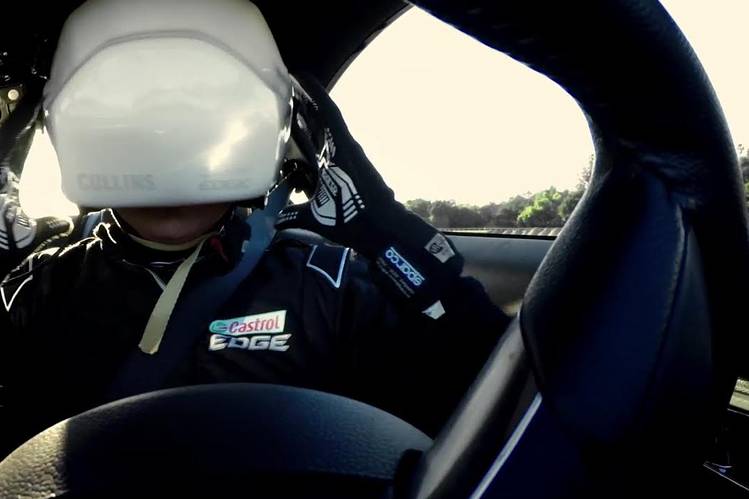In a race that fuses video-game technology and real world driving skill, two professional drivers, on two separate but identical tracks, have raced against each other while wearing virtual reality headsets attached to their crash helmets.
The race, which took place on November 10 at Los Angeles’ Santa Anita track, saw the drivers looking not at the actual road in front of them, but at a virtual reality representation of the track, infused with smoke, fire, waterfalls, and boulders.
The drivers, one of whom drove a stunt car in the latest James Bond film ‘Spectre,’ hurtled around the circuit in two identical 2015 V8 Ford Mustangs, trusting that what they were seeing on their Oculus Rift DK2 VR headsets was a true, real-time representation of how their cars were performing on the actual track.
“The main risk is, if I go blind and I can’t see where I’m going at 70 mph, I could thunder into a tree which would not feel very nice,” said U.K.-based stunt driver Ben Collins.
“The beautiful thing about virtual reality is you can press reset without killing yourself.”
To get the real-virtual mix right, technologists working for car oil company Castrol, which produced the event, mixed virtual reality with self-driving car technology.
One of the main challenges: tracking the cars’ exact positions as they sped around the track without the need for re-calibration. This was necessary so that an exact match could be achieved between what was happening on the physical track and its representation on the VR screens.
To track the cars, a system frequently used to navigate robots around a space was used, integrating a combination of physical, optical, and laser sensors gauged the position of the cars at high speeds during the race.
To get the two cars to communicate their locations without any significant transmission latency within the headset–which could cause the drivers to crash as they would not be accurately judging their vehicles’ orientation and locations– the technology team had to make sure that a fast Internet connection in the area of the race tracks would send all the data from the cars and the surrounding cameras and sensors to a powerful, on-site server.
The race comes as VR hardware and software is expected to hit the mainstream market in 2016, with companies like Facebook Inc. marketing the Oculus Rift VR headset and Sony Corp promoting its PlayStation VR.
Source: WSJ
https://blogs.wsj.com/digits/2015/12/03/pro-drivers-go-headset-to-headset-in-vr-race/

